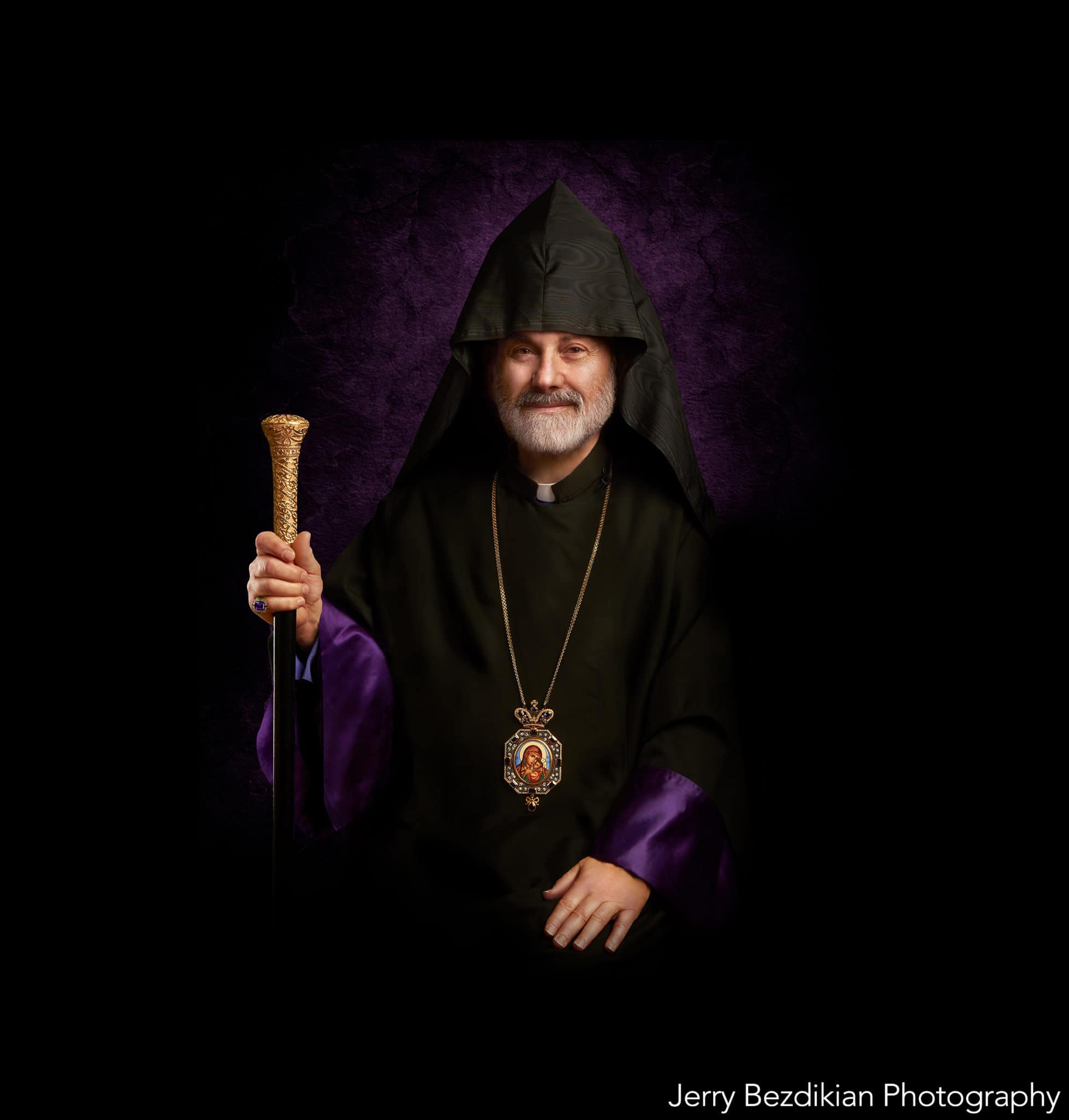The Prelate’s Sermon, Sunday, June 5
Today, according to the Armenian Church calendar, we are celebrating the feast of Pentecost, the Coming of the Holy Spirit, as it is narrated in the Acts of the Apostles 2:1-21. The Holy Spirit, in the form of cloven tongues of fire, descended upon the assembly of the apostles and faithful as they were seated in the Upper Room, and each was filled with a new understanding and even the ability to speak a new language in order to preach the Good News throughout the world.
The word Pentecost in Greek means “fiftieth”, and in Judaic tradition, it is counted as the 50th day following the Passover. Originally, it was the feast of the revelation of the Torah to Moses on Mount Sinai as well as the festival of the spring wheat harvest. It took a new dimension following the Ascension of our Lord Jesus Christ, and became the first fruit of the fulfillment of His Promises that the Comforter will come and guide the Apostles into all the truth (Jn 16.13). Thus, once again was justified the infallible word of the Almighty Lord that “I will give you a new heart and put a new spirit in you” (Ezekiel 36.26).
The Holy Spirit who is the Sustainer of the Creation and the Inspirer of the Prophets, renews, energizes, and motivates throughout the ages all those who are born anew and follow in the footsteps of the Savior of mankind. The Holy Spirit commissions the fishermen to become “fishers of men”, and to those who are considered by this world to be ignorant, the Holy Spirit makes them wise, and the Holy Spirit “lifts up the humble and fills the hungry with good things” (Lk 1.52-53).
The Holy Spirit is the animator of our souls, and without the Holy Spirit, as Saint Nerses the Graceful says, “we are alive physically but dead in spirit.” With this same understanding, the great prophet and the anointed king David beseeched the Lord after acknowledging his sinfulness by saying, “Do not cast me from your presence nor take your Holy Spirit from me” (Ps 51.11).
The Fruit of the Holy Spirit is multidimensional just as the goodness of the shining sun is innumerable. Saint Paul describes it very eloquently and factually when he says, “the Fruit of the Spirit is Love, Joy, Peace, Patience, Kindness, Goodness, Faithfulness, Gentleness, Self-confidence” (Gal 5.22-23). There is a fundamental understanding that the Holy Spirit transforms each person in two essential directions: inward and outward. When a person draws the presence of Love, Joy, and Peace of the Holy Spirit inwardly, then the person may pour forth all the virtues like the spring streaming from the bosom of the earth which irrigates the soil and brings forth many folds of bounties.
Paul’s statement is very remarkable. He cites the fruit, and then enumerates many other outcomes, making us aware that the impact upon those who are filled with the Holy Spirit is miraculously multiplied beyond imagination. For it is not the law of the flesh which operates in us anymore, but rather the grace of Almighty Power.
On this solemn feast, let us all invite the Spirit of the Creator and our Heavenly Father to come and to dwell, fill, and renew in our hearts, minds, and souls. Let us all humbly pray with Catholicos Nerses the Graceful and say, “Spirit of God, true God, who descended upon the River Jordan and the Upper Room, and enlightened me through the baptism of the holy font. I have sinned against heaven and before you. Purify me anew with your divine fire as you purified the holy apostles with fiery tongues. Have mercy upon your creatures and upon me, a great sinner.” And without ceasing, let us praise the All-Holy Trinity, the Father and the Son and he Holy Spirit. Amen.

